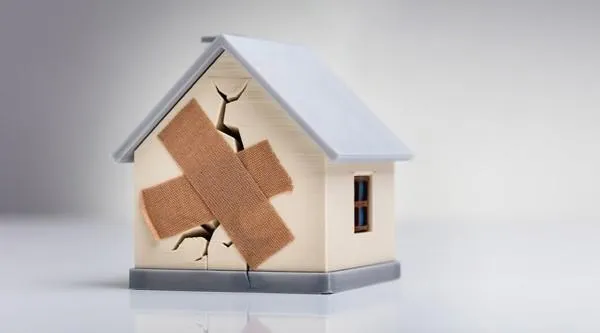
Your Rights, Your Home: How to Speak Up About Housing Disrepair Without Fear
Living in a home that’s cold, damp, mouldy, or unsafe can have a serious impact on your physical health, mental wellbeing, and everyday life. Yet many tenants, particularly those in social housing, feel afraid to speak up about housing disrepair. Whether it’s fear of eviction, not being believed, or simply not knowing your rights, these barriers can leave families struggling in silence.
This article aims to empower tenants with the knowledge and confidence to take action. You have rights, and support is available.
Why Speaking Up Matters
If your landlord fails to carry out essential repairs, they may be in breach of their legal duties. Issues like mould, leaks, broken heating, or structural damage are not minor inconveniences - they’re potential health risks. In the UK, landlords have a legal obligation to ensure the property is safe, secure, and fit for habitation.
Still, thousands of tenants, especially those in social housing, live in substandard conditions, with little or no response from their housing provider. In recent years, tragic cases have brought national attention to the danger of social housing damp and mould, particularly for vulnerable people and children.
If this sounds familiar, it’s time to speak up and know that you’re not alone.
Common Reasons Tenants Stay Silent
You may feel hesitant to report problems in your home and that’s understandable. Some of the most common worries include:
Fear of eviction or rent increases
Not wanting to "cause trouble"
Worrying the landlord won’t believe or respond
Not knowing how to make a complaint
Mental health struggles making it hard to act
But here’s the truth: making a housing disrepair complaint is your legal right, not a favour you're asking for. And there are professionals who can help you do it without fear or confusion.
Your Legal Rights as a Tenant
Whether you rent from a council, housing association, or private landlord, you are protected under the Homes (Fitness for Human Habitation) Act 2018. This means your landlord is responsible for:
Treating or preventing damp and mould
Fixing broken heating and hot water
Repairing leaks or faulty plumbing
Maintaining safe electrics and gas appliances
Fixing structural problems (like unsafe walls, ceilings, or floors)
Ensuring good ventilation to prevent condensation build-up
If your landlord fails to act after being informed of these issues, you may be entitled to claim housing disrepair compensation.
How to Raise a Disrepair Issue Without Fear
Here are steps to take if you're experiencing disrepair but don’t know where to start:
1. Record the Issue
Take clear photos or videos of any damage or hazardous conditions such as mould patches, leaks, broken windows, or structural cracks.
2. Report It in Writing
Contact your landlord or housing officer in writing (email or letter), describing the issue and when it started. Keep a copy of your message for your records.
3. Follow Up Regularly
If there’s no response within a reasonable time (usually 14-21 days), follow up again in writing. Escalate to the housing complaints team if necessary.
4. Keep a Log
Record dates, times, and responses (or lack of them). This will be crucial evidence if you later choose to claim housing disrepair compensation.
5. Get Support From Housing Disrepair Claims Solicitors
If the landlord continues to ignore the issue or refuses to act, you may need legal help. At Sparrowhawk Legal we can guide you through the process and help you take formal action, often on a no-win, no-fee basis.
How Sparrowhawk Legal Can Help
Working with our housing disrepair claims solicitors means you’re not facing the problem alone. We will:
Assess whether you have a valid claim
Handle communication with your landlord or housing provider
Help you gather the necessary evidence
Ensure any compensation reflects the disruption or harm you’ve suffered
Push for the repairs to be completed
Whether you live in council housing, housing association accommodation, or private rental, you are entitled to live in a safe, healthy environment.
You’re Not Being Difficult - You’re Standing Up for Your Health
It’s easy to internalise the idea that “things aren’t that bad” or that “it’s not worth the hassle.” But when poor housing starts affecting your health, your children’s wellbeing, or your daily life, it’s worth speaking up. Everyone deserves a safe home, and support is available to help you take that step.
If you’ve reported problems like damp, mould, leaks or broken heating, and your landlord has failed to act, we can help you move forward with compassion and clarity.
Need Support?
At Sparrowhawk Legal, we put people before profits. We’re here to listen, to support, and to act - helping tenants make housing disrepair claims with confidence and care. You don’t have to face this alone.
Your home should be your haven. Let’s make sure it is.
Take our quiz to find out if you could be eligible to make a claim, alternatively you can book a call with us or email admin@sparrowhawk.legal.
